As part of UTM Library‘s Research Week 2024, a forum entitled AI in Academia: Transforming Research and Publication Practices was held on 24 October 2024. This insightful knowledge-sharing session was hosted at the Read Cafe – He & She Coffee, UTM Kuala Lumpur. It featured two esteemed panelists: Professor Ts. Dr. Khairur Rijal bin Jamaludin from the Department of Smart Engineering and Advanced Technology, Faculty of Artificial Intelligence (FAI), and Dr. Uswah binti Khairudin, Head of the Department Mechanical Precision Engineering, Malaysia-Japan International Institute of Technology (MJIIT), UTM Kuala Lumpur. The forum was skillfully moderated by Assoc. Professor Ts. Dr. Nor Zairah binti Ab Rahim, also from the Faculty of Artificial Intelligence (FAI), UTM Kuala Lumpur. The event was live streamed on Facebook and YouTube via UTM Library TV to extend its reach, enabling a wider audience to benefit from the insightful discussions.
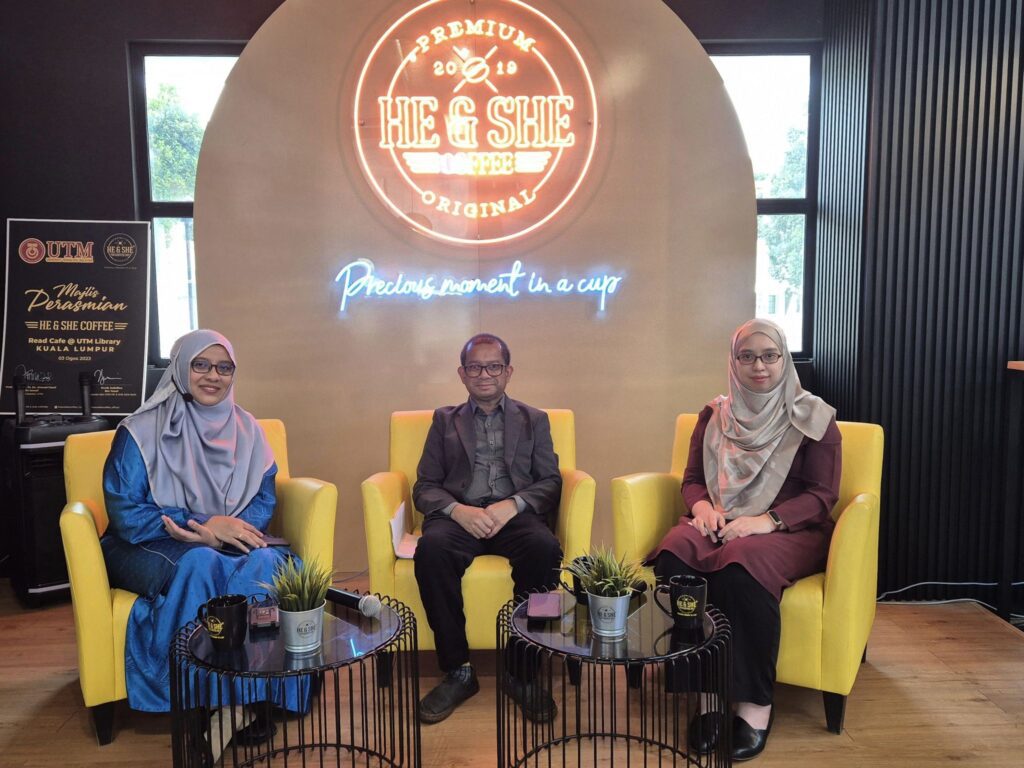
The forum began with a discussion on how AI is transforming in the research landscape. Professor Khairur highlighted that AI is revolutionizing research by accelerating data collection and analysis and enabling researchers to automate time-consuming processes. He noted that AI’s role in hypothesis generation helps minimize research errors, ultimately enhancing the quality of research outputs.
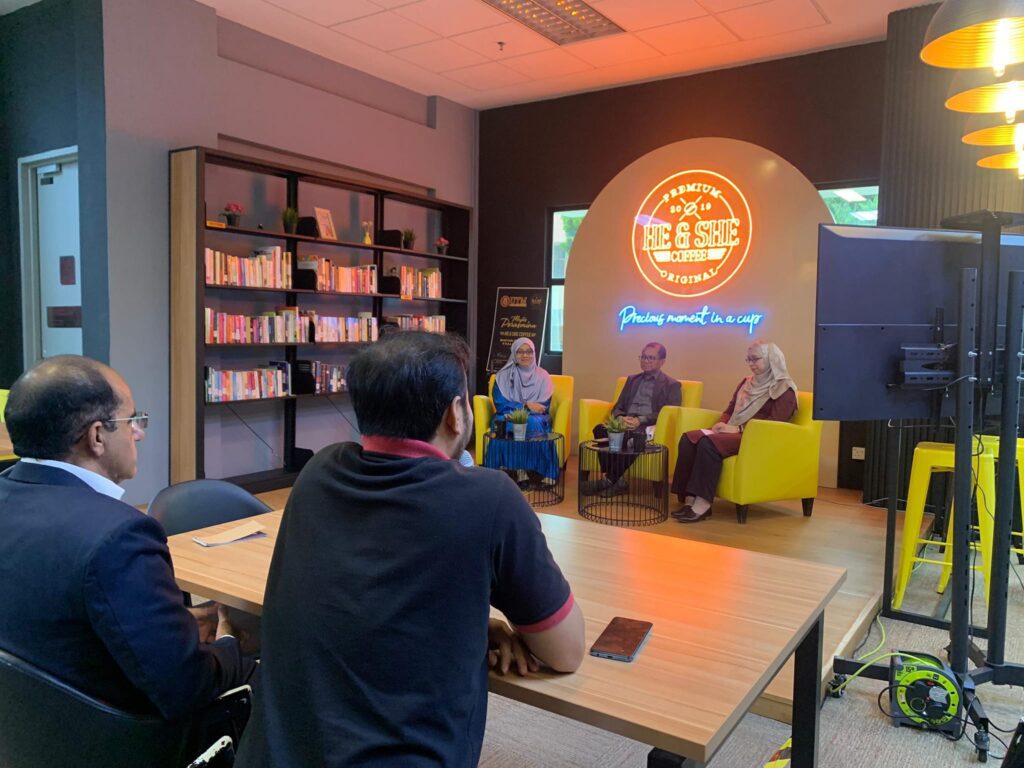
Dr. Uswah expanded on this by stating that AI serves as both a transformative and supplementary tool, depending on its application. For researchers, it significantly reduces the time required for tasks like literature review, allowing them to synthesize large volumes of information quickly. According to her, AI is especially valuable in supporting researchers in their work, particularly for lecturers, senior researchers, and research students.
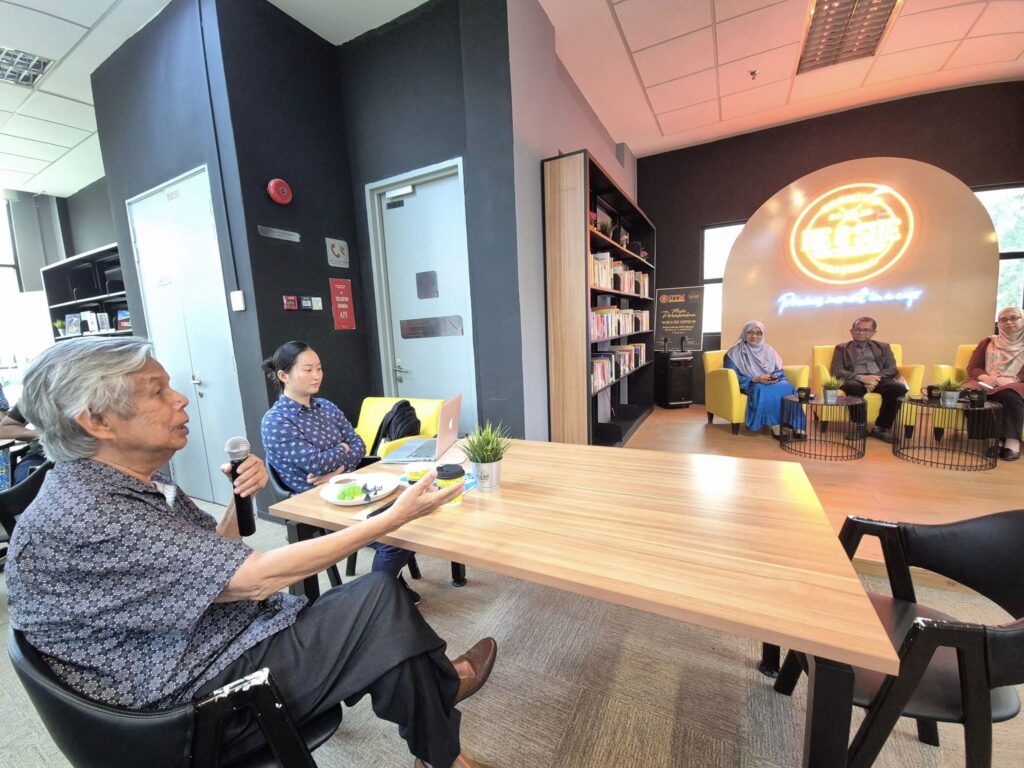
The discussion also delved into university policies on AI usage. Professor Khairur stressed the importance of universities being proactive in preventing academic misconduct facilitated by AI, such as plagiarism. He called for policies that encourage the responsible use of AI while ensuring that students understand research fundamentals without over-relying on automated tools.
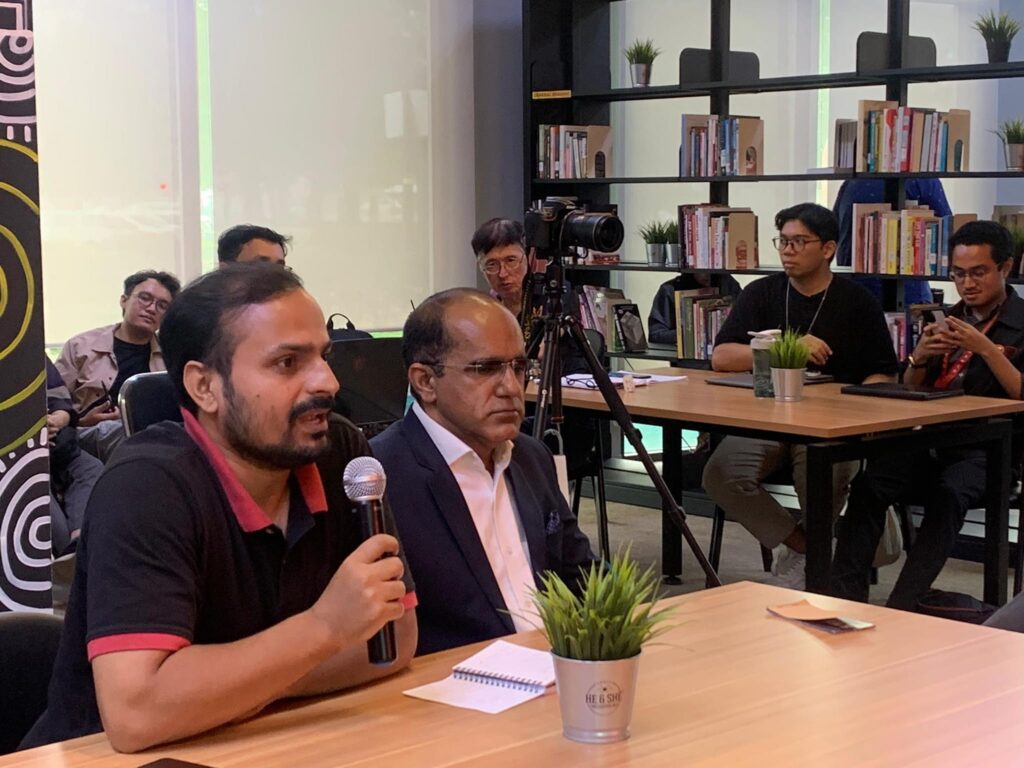
Dr. Uswah added that UTM has already introduced policies encouraging staff and students to utilize generative AI for writing, provided that the sources are cited appropriately. She emphasized the need for realistic and practical guidelines for AI usage, both in terms of privacy and ethical considerations.
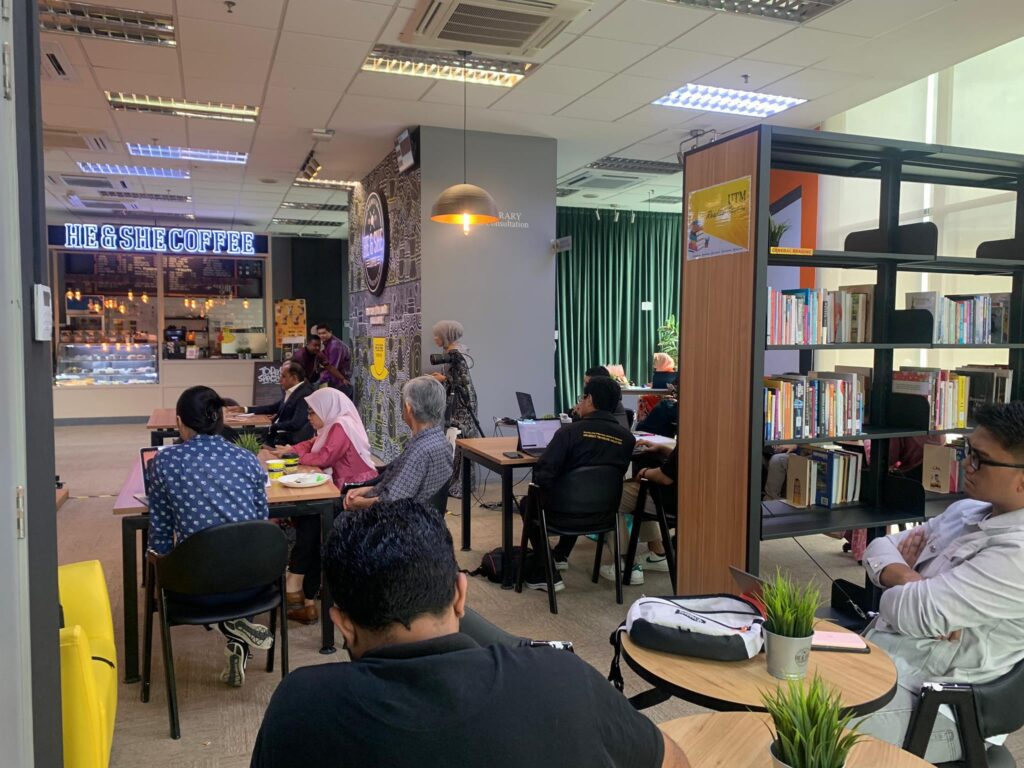
The panel also addressed the risk of over-reliance on AI and how it could weaken foundational analytical skills among students and researchers. Professor Khairur explained that while AI can solve complex equations instantly, it might prevent students from mastering fundamental concepts. He emphasized the need to change assessment methods to focus on understanding the process rather than just the final results.
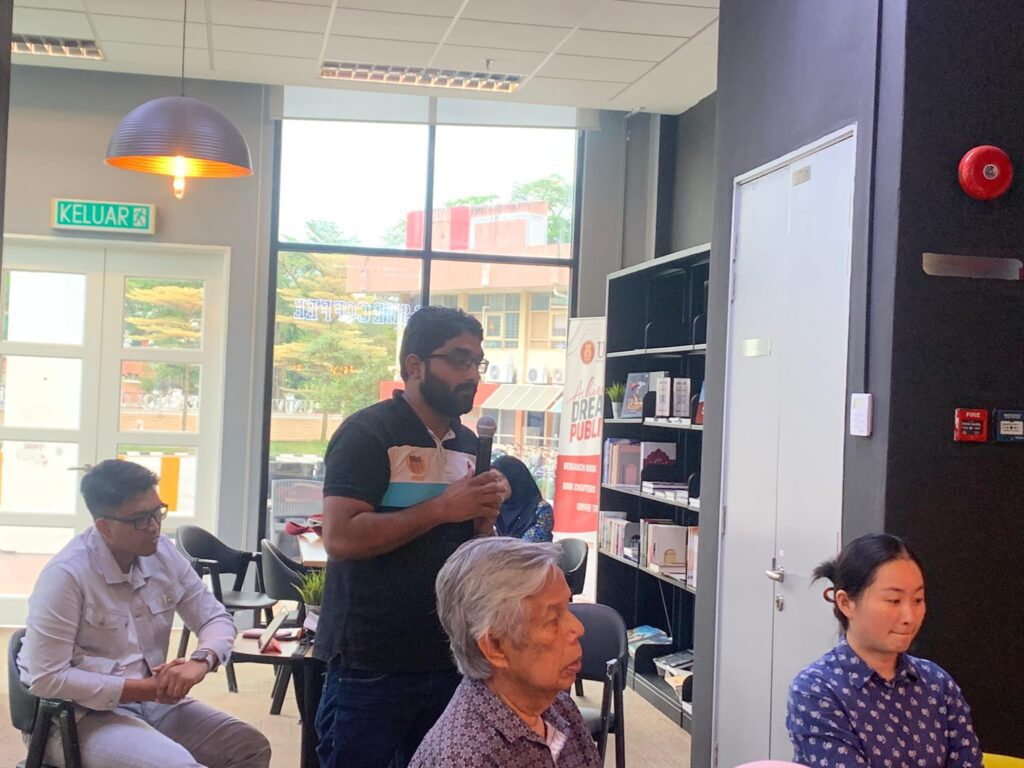
Both panelists expressed optimism about the future of academic publishing. Dr. Uswah mentioned that AI could become a co-author or a writing assistant, helping non-native speakers communicate their findings effectively. However, they agreed that human authorship remains essential to maintaining the credibility and originality of academic publications.
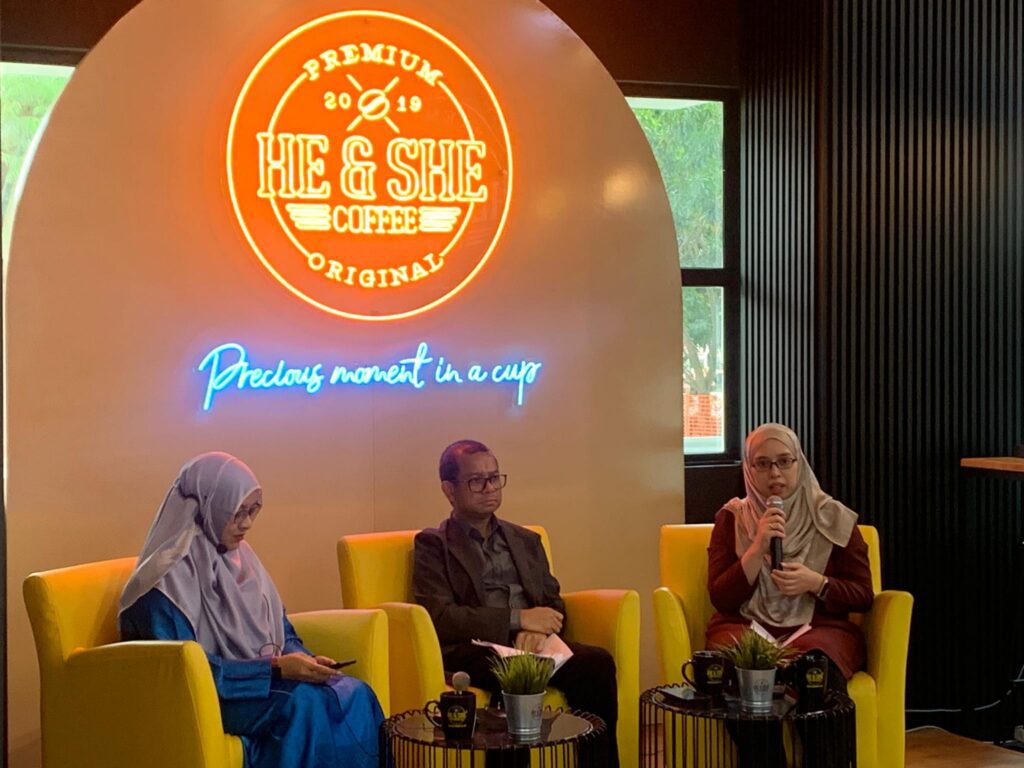
During the Q&A session, the audience asked questions about the impact of AI on research, the ethics of authorship, and the reliability of AI-generated knowledge. Tan Sri Datuk Dr. Haji. Ahmad Zaharudin Idrus also shared his thoughts on how AI works for industries, giving an example of its application in oil data production. He concluded that AI helps analyze data effectively, emphasizing that AI should not be treated as solely an academic tool but should be related to industry applications as well. The panelists addressed these concerns, emphasizing the importance of understanding the context and limitations of AI tools.
The session concluded with thanks to the panelists and attendees, and a reminder of the importance of critical thinking and academic integrity in the age of AI.


